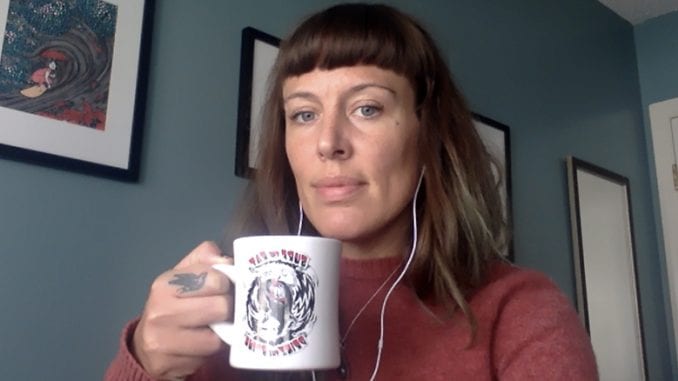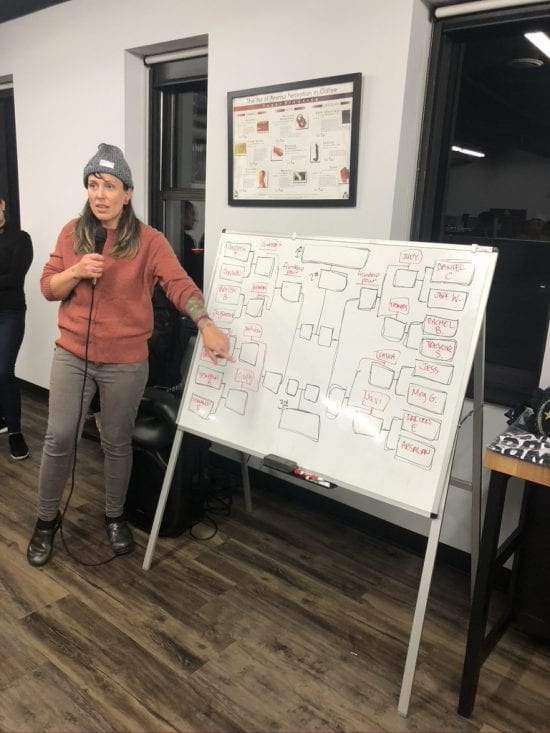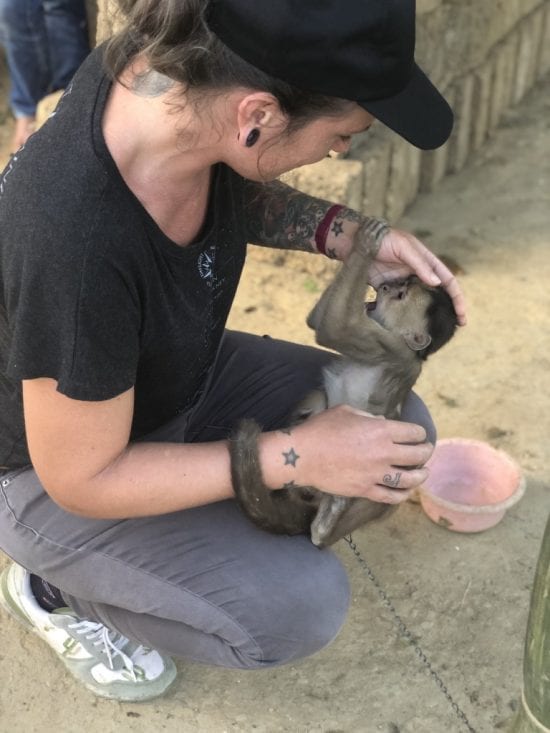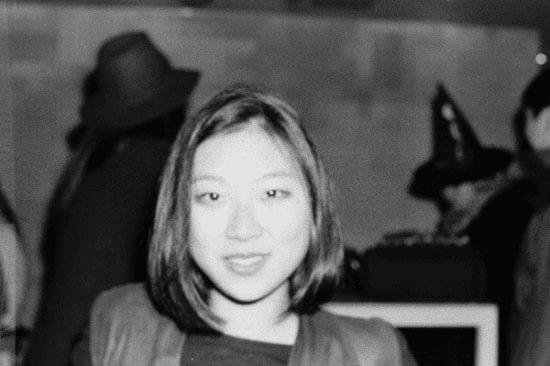
We chat with the director of education at The Lab by Royal NY via Zoom about her work in NYC and Hawaii.
BY JIYOON HAN
BARISTA MAGAZINE ONLINE
Photos courtesy of Zoey Thorson
Zoey Thorson is the director of education for The Lab by Royal NY, a role she finds to be an extension of her 16 years of experience in coffee retail—because any role in coffee, in her view, has a “coffee education” component. Prior to joining The Lab in 2019, Zoey was with Gimme! Coffee for over six years, first as store manager, regional trainer, then director of retail for New York City. Zoey is also a Q Arabica Grader and an SCA Authorized Specialty Trainer.
We chatted with Zoey about how she transitioned from coffee retail to coffee education, which includes her time in New York City and Hawaii. During the Zoom interview, Zoey was in the company of her cat, Sam, and a Kalita-brewed Guatemalan Gesha coffee. At home during shelter in place, Zoey has been experimenting with the settings on her new Breville automatic brewer.

Jiyoon Han: How did you go from being in coffee retail to where you are now, in coffee education at The Lab?
Zoey Thorson: I’d been in coffee retail for a long time. It wasn’t because I was stuck and unable to move forward. I wasn’t sure what I wanted to do with my life, so I stayed in the café world. I got involved in a lot of volunteer opportunities and events in coffee. Then (I) earned the lead instructor certificate with the Specialty Coffee Association (SCA), which got me into teaching. I fell in love with it. From this point on, I tried to figure out how to create a career as a coffee educator.
Right before joining Royal NY, you were doing coffee in Hawaii—what did you do there?
I worked as director of operations at Daylight Mind Coffee Company in Kailua-Kona, Hawaii. It was challenging due to constant employee turnover. I did some training, management, and freelance work in Hawaii as an AST with Pacific Coffee Research.
What was challenging specifically about being in coffee retail in Hawaii?
Three things: the reach, cultural differences, and lack of infrastructure.
First, the reach. On the SCA website when searching for a class, we are grouped with the “U.S.” Asia, on the other hand, has a strong demand for coffee education. So, it was a bit difficult to access that market.
Second, I also underestimated my ability to adjust my management technique to cultural differences. During my time in New York, I had had staff from all walks of life. I thought I knew how to adjust my style to meet the needs of a variety of cultures, backgrounds, and a diverse set of employees.
Hawaii is very different. The cultural background of folks in Hawaii are extremely diverse, and there is very little dilution of these cultures. Value sets and what people needed from a place of support are so drastically different from person to person. So I had to think about how to meet those needs and motivate my team. For example, in the Micronesian culture, any form of promotion is looked down upon within the community. It reads as “showing off.” So, when a large part of your staff feels rooted in this belief, how do you make sure that they are treated equally, with the same opportunities as everyone else? How can you reward them fairly, when rewards are looked down upon? And in turn how do you motivate a team, within a capitalist system, when that doesn’t speak to their needs? How do you motivate someone who doesn’t want to be promoted? Neither do they want better pay because that’s also showing off.
Lastly, there’s also little infrastructure in Hawaii—lots of homelessness, single-parent child-care challenges, domestic violence. I’ve faced some really challenging situations. A mom with five kids who had just lost her home—what do I do as her manager?

You worked in coffee retail in New York City for 16 years before moving to Hawaii. How was it in NYC?
In New York City, the challenge was having new shops constantly opening up. It was financially impossible to pay your baristas more, which they deserved—being a barista is physically and emotionally challenging. We expect them to be super passionate about the product. Labor cost is over 30% of doing business, so it doesn’t match up with what your expenses are. How do I give baristas what they need to be successful and financially stable, and also make sure this business can make enough money so we can continue to do that? The year I left my job in NYC, I hadn’t lost an employee in over a year. It was a milestone.
Wow, so how did you figure out the turnover issue?
Retail and education—the key component is that I prioritize the people above everything else. Staff is always my first priority. What I did in NYC, I worked for a company that had amazing values built into everything they did. People were working there because they liked what we were doing. On a local level, we were as close to a community center as we could be and got involved with the community around our cafés as much as possible. (We also had) values that the staff felt strongly tied to.
(Also, we were) looking for other ways to support staff. (We did a) CSA (community-supported agriculture) partnership, providing baristas with fresh local produce, which often had more value than a small hourly raise would have. We had local pickups at our shop, and any extra went to the staff. We made deals with the local barbers, tattoo artists, hair stylists, and gyms—helping our baristas in getting their needs (and desires) met at a fraction of the cost.
Stay tuned for part two of this interview.

ABOUT THE AUTHOR
A native New Yorker, Jiyoon Han is a Q Arabica Grader, Q Processing Generalist, and was a judge for the U.S. Coffee Championships 2019 Brewers Cup Prelims. As Chief Daughter at Bean & Bean Coffee in NYC, Jiyoon sources, roasts, and cups coffee. She’s a student at the Harvard Business School, where she is co-president of the Coffee & Tea Club.

